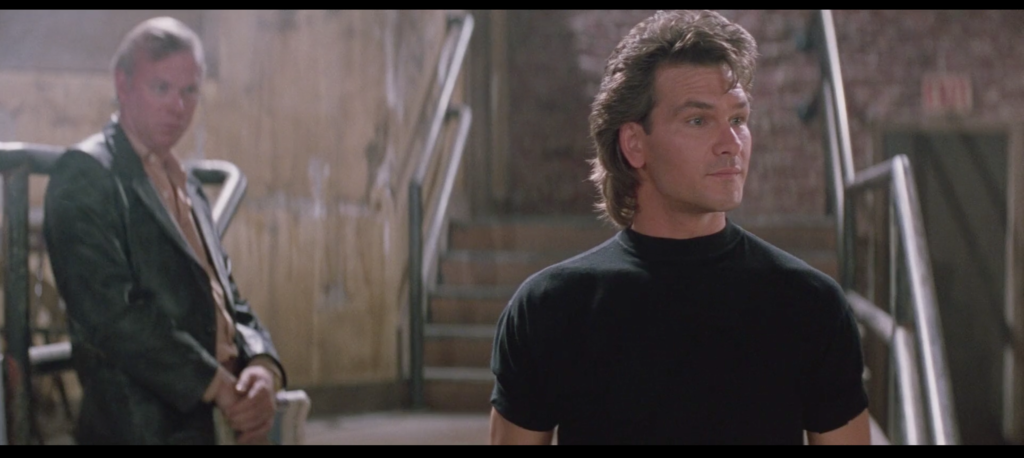Posts Tagged ‘marxism’
129. The Third Rule, Verse 4 Revisited
May 9, 2019“This is the new Double Deuce,” says Frank Tilghman. We are at the start of an all-hands staff meeting, and Tilghman is pointing to the concept art for the bar’s redesign. But standing nearby is his latest hire, Dalton. It is through Dalton, with Dalton, in Dalton that the new Double Deuce will be achieved. Dalton embodies the new Double Deuce. He is its future.
When Dalton takes over as cooler he becomes more than just the chief bouncer. His role is not to handle a series of discrete incidents, but to institute sweeping reforms that will eliminate such incidents forever. “It’s going to change,” he states—not a threat, not a promise, a fact. His bouncers, too, must change for this to take place. As below, so above.
Bouncing on the Dalton Path is a matter of following “three simple rules.”
This, for the fifth time, is the third.
3. Be nice (continued)
Previously:
- The Great Commandment
- The Parable of Someone Getting in Your Face and Calling You a Cocksucker
- Walking the Dalton Path Together
- It’s Nothing Personal
But there’s more to Verse 4, isn’t there? Dalton doesn’t merely tell his acolytes that bouncing is nothing personal. He chooses to emphasize that bouncing is a job. Bouncing is work. Bouncing is labor. Through this lens, perhaps, we can arrive at the cod Marxism for which Road House has been crying out for years.
We’ve discussed one interpretation of the latter portion of this verse already—the need to maintain a level head, a distanced perspective, the ability to distinguish between professional challenges to be surmounted and personalized challenges to be destroyed.
At this point Dalton could, and indeed at a subsequent point he will, emphasize the “sticks and stones may break my bones” element. He could, and will, insist that though they will be dealing with physically and verbally aggressive patrons, those patrons have no insight into the men bouncing them and thus their words and deeds carry no true weight. That’s one interpretation of “it’s nothing personal,” and it’s valid.
But what does Dalton mean by counterposing “it’s nothing personal” with “it’s a job”? By situating bouncing within the context of labor and setting this up in opposition to the personal, he is underlining—and not for the first time—the communal nature of the task. The bourgeois conception of personhood, atomic individualism, false individual consciousness, Thatcher proclaiming “there is no such thing as society”: These have no place Dalton’s philosophy. When you do a job you do so in concert with your fellow workers, and, ideally, for the benefit of workers as a class.
You are no Morgan, searching for opportunities in which to vent your rage and exercise power at the expensive of the collective.
You are no Pat, enriching yourself at your fellows’ expense.
You are no Steve, fucking young women of uncertain age in the breakroom, or Judy, selling cocaine in the bathroom, indulging in hedonistic pursuits while others shoulder your burden.
“You are the bouncers,” Dalton says at the end of the Giving of the Rules. You are the proletariat. Through your labor the value of the Double Deuce is derived, a fact which is made plainer and plainer as the film goes on.
“I am the cooler.” Dalton is the vanguard. He seizes power with the intent of awakening the wider class of bouncers to their revolutionary potential and diffusing that power among them, and unlike other vanguardist movements he does so.
“Watch my back and each other’s.” Solidarity forever.
“Take out the trash.” Up against the wall, motherfuckers.

